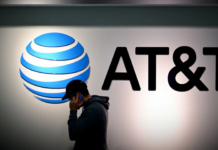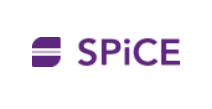In the rapidly evolving world of technology, generative AI (GenAI) has been making headlines for its potential to write computer programs. While this tech fever promises immense potential, even well-funded startups, like the French sensation Poolside, acknowledge the pitfalls. The frequent errors of generative AI can be excusable for mundane tasks but are less forgiving when a minuscule error in coding might jeopardize an entire system.
Yet, amidst this generative AI whirlwind, one name stands out, not for the hype, but for its innovative approach and established client list. Welcome to Diffblue.
An Oxford Gem: The Diffblue Story
Emerging from the same Oxford University AI labs that introduced the world to DeepMind, Diffblue has carved its niche in the automation sector. With a clientele boasting names like JP Morgan, Citi, Goldman Sachs, Amazon Web Services, and Cisco, they are at the forefront of automating code, specifically for prominent financial institutions.
Rather than mimicking the ChatGPT model that banks on vast data to guess problem solutions, Diffblue utilizes reinforcement learning, akin to DeepMind’s AlphaGo system. This approach involves training the model on the logic and rules of the presented problem. The model then grapples with the problem, iterating until it discerns the optimal solution.
With Java as their primary focus – the leading enterprise coding language – Diffblue employs its technique to ensure that computer programs perform seamlessly.
The Autonomous Difference
According to Diffblue’s CEO, Matthew Lodge, what sets their system apart from GenAI models is the absence of the need for a “human-in-the-loop”. With projects that might encompass applications with over a million lines, it’s essential for the testing phase to be autonomous. Lodge emphasizes, “To genuinely save time for a development team, the process has to be unattended.”
Blending Software with Business Context
Lodge, who took the helm at Diffblue in 2019, brings valuable insights from his days selling software to Silicon Valley giants. For him, it’s not just about a product’s functionality but its alignment with the operational environment, especially in regulated sectors like finance. His emphasis on a self-contained product ensures that clients don’t need to rely on cloud services, eliminating potential security risks. Moreover, Diffblue’s confidence in its offering is evident from its assurance to handle legal challenges linked to the code it generates.
While there’s chatter about a potential Series B funding round in 2024, Lodge’s eyes are on strengthening their commercial presence in the US, which contributes to 90% of their business.
Understanding the Competitive Landscape
It’s not just startups like Poolside that Diffblue keeps an eye on. Players like Silicon Valley’s CircleCI and even DeepMind, with its reinforcement learning for code generation, are in the mix. However, Lodge believes their primary competition remains the human touch.
Lodge seems unthreatened by the allure of GenAI for coding. He argues that while the promises of models like ChatGPT have been enchanting, the delivery hasn’t kept pace. He simplifies, “It’s like equating faster typing to efficient software development,” subtly hinting that there’s much more to the process.
In conclusion, while the tech world remains abuzz with the potential of GenAI, companies like Diffblue are silently, yet significantly, shaping the future of code automation, one line of Java at a time.











